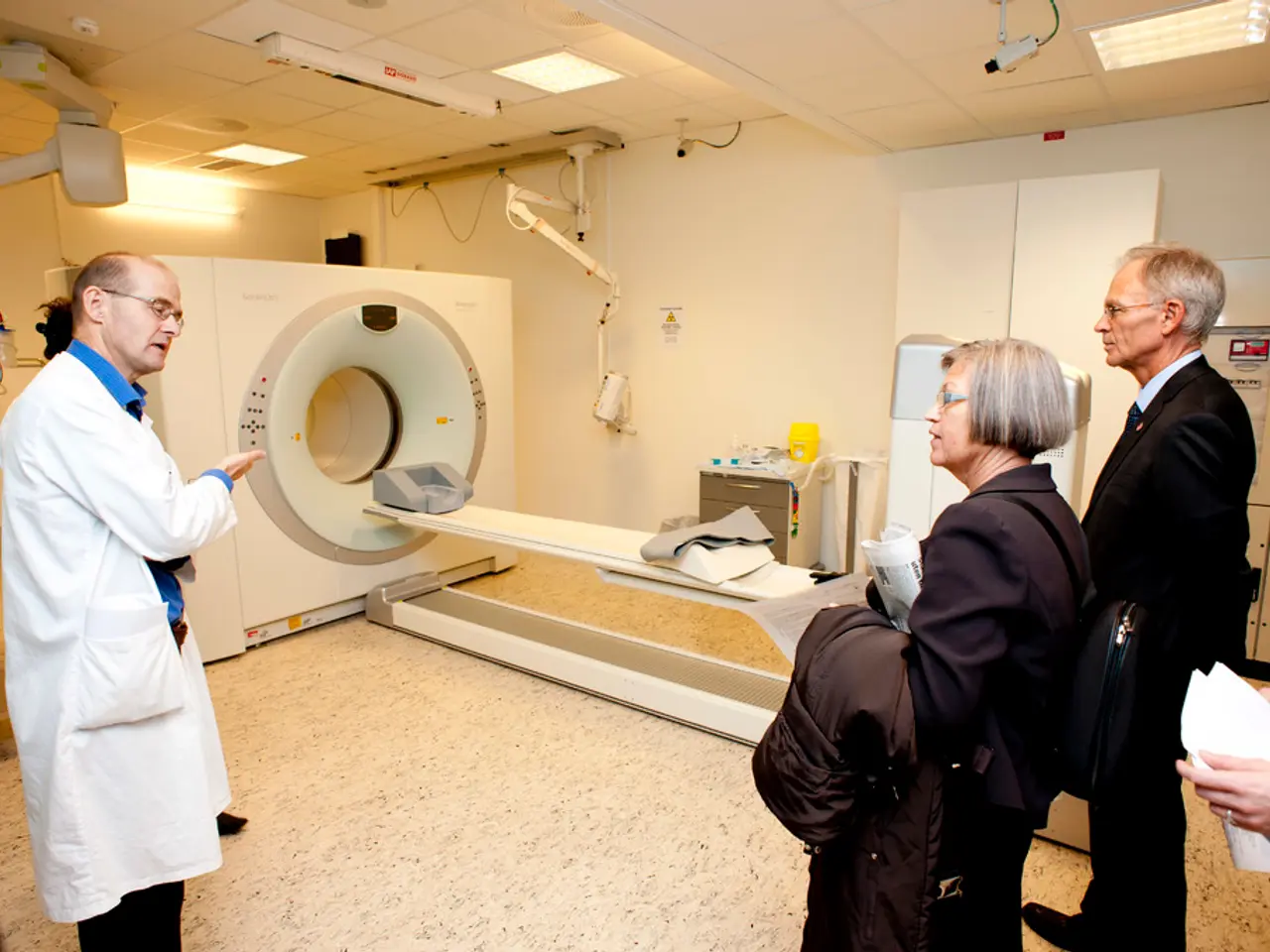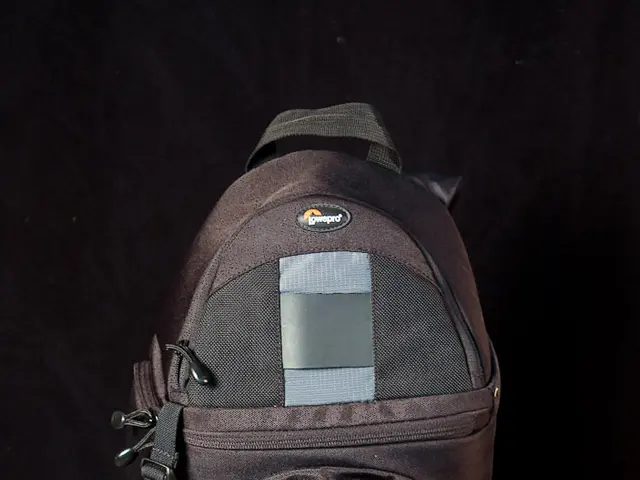Germany's Lone Musculoskeletal Radiology Scholar Based in Würzburg
The University Medical Center Würzburg (UKW) has made a significant stride in the field of musculoskeletal (MSK) imaging with the appointment of Prof. Dr. Jan-Peter Grunz as the new W2 professor for Clinical Radiology with a focus on MSK Imaging.
Born and educated in Würzburg, Grunz has a long-standing connection with the Julius-Maximilians-Universität (JMU) where he earned his doctorate and habilitation. He is now leading the scientific working group for MSK imaging at the UKW since 2020.
Grunz is well-known in the radiology community, serving as the patron of the Würzburg MSK Symposium, a prestigious event that attracts radiologists from all over Europe. His expertise in MSK imaging is further evident in his work on the application of cone beam CT in the extremities during his habilitation.
The new professorship for MSK imaging is integrated into the Institute for Diagnostic and Interventional Radiology, led by Prof. Dr. Thorsten Bley. Bley expressed his delight at Grunz's acceptance of the call, believing that Würzburg has the potential to establish itself as a leading MSK center in Germany and Europe.
One of the key technologies driving advancements in MSK imaging is Photon-Counting CT (PCCT). The UKW has had a PCCT scanner since December 2021, primarily used for MSK imaging. Grunz considers PCCT as "the biggest development in medical imaging over the past decade."
PCCT offers higher spatial resolution, improved contrast, reduced radiation dose, and spectral imaging capabilities, significantly improving bone and soft tissue visualization. It enables more precise assessment of fractures, bone microarchitecture, and joint diseases compared to conventional CT.
Grunz has optimized the cone beam CT devices at the UKW through numerous studies, and it is now used in almost every distal forearm fracture at the UKW. The two scanners of this type currently in use at the UKW provide sharp images of bones with low radiation exposure at the elbow or foot.
The adoption of PCCT is not limited to Würzburg. Germany, as a leading European country in medical imaging technology, is actively participating in adopting and evaluating PCCT systems. The 106th Deutscher Röntgenkongress 2025 in Wiesbaden is expected to include discussions and presentations on PCCT and other cutting-edge imaging methods.
Europe hosts multiple conferences and Continuing Medical Education (CME) courses focused on PCCT, indicating widespread interest and training efforts in Europe’s radiology community. Educational initiatives in the Netherlands, Spain, Switzerland, and Austria have addressed PCCT technology.
The future implications of PCCT are promising. It is expected to further transform MSK imaging by enabling earlier disease detection and more precise treatment planning through improved image quality and quantitative capabilities. Integration with artificial intelligence will enhance image interpretation and workflow efficiency.
European adoption of PCCT is likely to accelerate as more systems become commercially available, supported by educational programs and multicenter research to validate clinical benefits and cost-effectiveness. With Grunz at the helm, the UKW is poised to contribute significantly to these advancements.
References: 1. www.nature.com/articles/s41598-021-91665-z 2. www.ncbi.nlm.nih.gov/pmc/articles/PMC7786062/ 3. www.sciencedirect.com/science/article/pii/S1878819820314169 4. www.springerprofessional.de/en/book/9783662606077 5. www.rontgenkongress.de/deutscher-rontgenkongress/drk-2025
- Grunz, in his role at the UKW, is leading research on the application of Photon-Counting CT (PCCT) in musculoskeletal (MSK) imaging, believing it to be the biggest development in medical imaging technology over the past decade.
- The health-and-wellness sector, including fitness-and-exercise and medical-conditions management, can benefit significantly from advancements in technology such as PCCT, as it offers improved visualization of bones and soft tissues.
- The University Medical Center Würzburg (UKW) is collaborating with other European institutions to facilitate the adoption of PCCT, with the aim of contributing to the transformation of MSK imaging and earlier disease detection through quantitative capabilities and AI integration.








